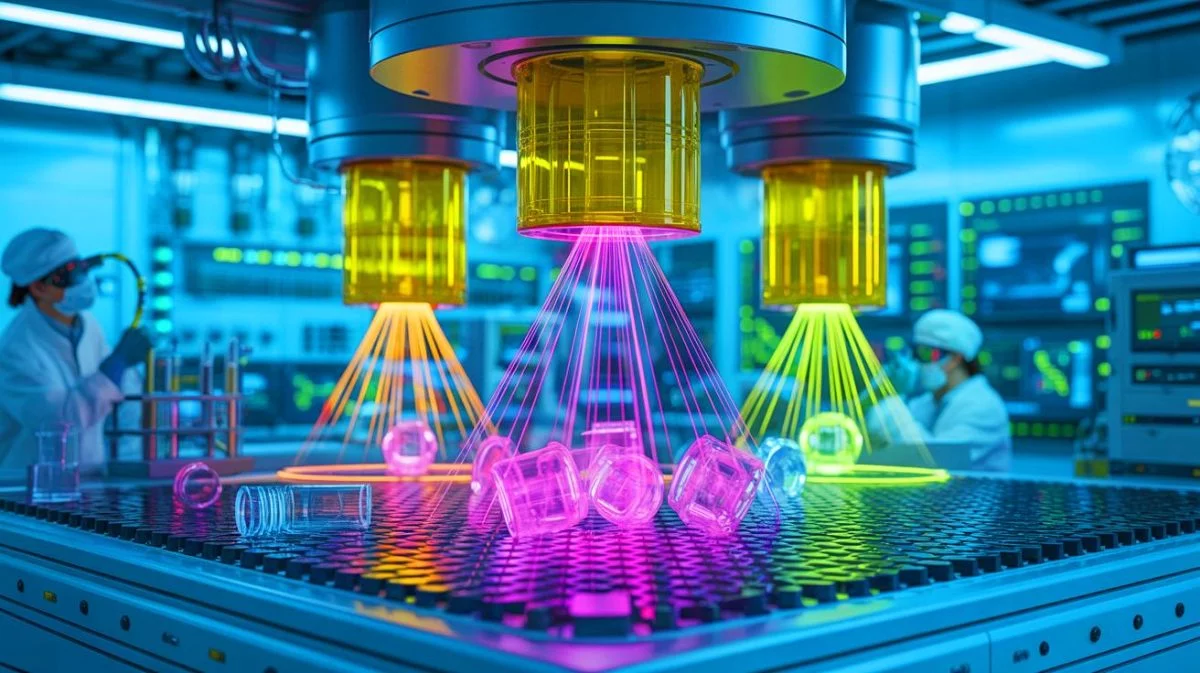Revolutionary Plastic Recycling Breakthrough: Harnessing Electron Beam Technology Against “Forever Chemicals”
By Quantum Server Networks – August 2025

The global challenge of plastic waste—particularly “forever chemicals” like PTFE (polytetrafluoroethylene, commonly known as Teflon)—has sparked mounting concern among scientists, policymakers, and industries. These substances are renowned for their durability, but their persistence in the environment creates long-term ecological and health risks. Now, Japanese researchers have unveiled a groundbreaking method that uses electron beam technology to decompose PTFE efficiently and sustainably, opening a new frontier in recycling innovation.
Understanding the Breakthrough
PTFE belongs to the family of PFAS compounds, chemicals notorious for their resistance to breakdown. Traditional disposal and recycling methods, such as pyrolysis, are energy-intensive and environmentally costly. The new electron beam method leverages controlled irradiation with moderate heat to weaken the strong carbon-fluorine bonds that make PTFE so resilient.
At room temperature, the results were modest—just 10% decomposition. But at 518 °F, efficiency jumped to 86%, and at 698 °F, complete decomposition was achieved. The PTFE was converted into gaseous byproducts such as oxidized fluorocarbons and perfluoroalkanes, which can be reused as valuable feedstock in chemical manufacturing. This offers not only an environmental solution but also new economic opportunities in industrial chemistry.
A Leap in Energy Efficiency
Compared to pyrolysis, the new method is remarkably energy-efficient. According to Dr. Akira Idesaki, the process reduces energy requirements to just 2.8–4 MWh per ton, making large-scale recycling not only feasible but also cost-effective. Dr. Yasunari Maekawa, the project lead, highlights that the technique could pioneer cleaner industrial recycling practices, reducing environmental impact while creating new business opportunities.
Global Efforts to Tackle “Forever Chemicals”
The fight against PFAS is global. Beyond Japan, researchers at the University of Leicester have recently developed a sound wave separation method that isolates PFAS membranes from valuable metals without the use of harsh chemicals. These complementary innovations illustrate how scientific ingenuity can provide scalable and safer alternatives to current waste management systems.
Together, such approaches represent a paradigm shift in how humanity can handle persistent plastics. By combining novel methods like electron beam decomposition with international initiatives, the vision of a sustainable recycling ecosystem becomes far more tangible.
Why This Matters
PTFE and other PFAS-based materials have long been celebrated for their non-stick, chemical-resistant, and durable properties, finding applications in cookware, aerospace, electronics, and medical devices. Yet, these same properties make them hazardous once discarded, as they resist degradation in soil, water, and living organisms.
This breakthrough offers a path forward—transforming plastics from an environmental liability into a reusable resource. By reducing the carbon footprint of recycling and offering economic reuse of byproducts, electron beam technology could set a precedent for how industries worldwide address plastic pollution.
A Future of Sustainable Recycling
As the world accelerates toward circular economies and sustainable manufacturing, breakthroughs like this are crucial. Imagine a future where “forever chemicals” no longer accumulate in the environment but are continuously recycled into useful materials. Such a transformation could reshape industries and protect ecosystems for generations to come.
📖 Read the full original article on Energy Reporters: Unbelievable chaos transforms our destiny: US scientists ignite global fury with revolutionary plastic breakthrough
Footnote: This blog article was prepared with the assistance of AI technologies to support science communication and outreach.
Sponsored by PWmat (Lonxun Quantum) – a pioneer in GPU-accelerated materials simulation software advancing quantum, energy, and semiconductor research. Discover more at: https://www.pwmat.com/en
📘 Download our latest brochure: PWmat PDF Brochure
🎁 Try PWmat for free! Request a trial and receive detailed information tailored to your R&D projects: Request a Free Trial
📞 +86 400-618-6006 | 📧 support@pwmat.com
#PlasticRecycling #PFAS #ForeverChemicals #ElectronBeamTechnology #SustainableMaterials #EnvironmentalInnovation #CircularEconomy #QuantumServerNetworks

Comments
Post a Comment